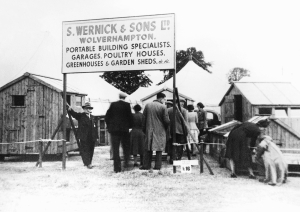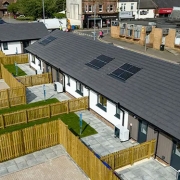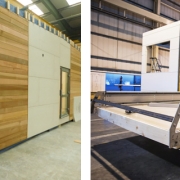Building Better, the National Housing Federation-supported group of housing associations and councils working to increase the use of modern methods of construction (MMC), has added a new manufacturer to its MMC Category 1 framework.
Building Better and Procurement for Housing (PfH) have signed up ZED PODS to their volumetric framework, which is worth up to £400m over four years. Social housing organisations can procure pre-manufactured 3D construction systems for both houses and apartments from ZED PODS through the deal.
ZEDPODS have been appointed to the framework on a direct award basis so housing associations and local authorities won’t need to go through any additional tender process to procure from them. Streamlining MMC contracting in this way saves around £15,000 in procurement costs for each housing organisation.
The framework also enables very early engagement with ZED PODS, in a compliant way. When social housing organisations meet with manufacturers right at the start of a project and tap into their design experience to create plans that are right for all parties, this commonly leads to more successful schemes.
Founded in 2016, ZED PODS design and build zero-operational-carbon social housing and specialise in delivering turnkey housing solutions using volumetric MMC. ZED PODS’ build system can be used on traditional sites and also constrained brownfield locations such as derelict garage sites, carparks, and flood zones.
ZED PODS have delivered award-winning housing schemes for both local authorities and housing associations. They are presently working with 28 public sector organisations to plan and design MMC schemes, and they are currently onsite building zero-operational-carbon social homes in Sheffield, Ashford, Bristol, and across Wales and Devon.
All MMC homes procured under the Building Better framework take a fabric-first approach (prioritising insulation ahead of add-ons like solar panels), they meet nationally described space standards (NDSS) and have the option to be wheelchair accessible. They are certified by the Buildoffsite Property Assurance Scheme (BOPAS) and assessed and accepted by building warranty provider ICW Insurance Services.
Tony Woods, Technical Manager for Construction & Sustainability at Procurement for Housing (PfH) said: “The quality of ZED PODS’ homes really set them apart in the tender process, as well as their management team and financial position. They manufacture high performance, low carbon houses and flats that exceed the proposed Future Home Standards and the Welsh Development Quality Requirements 2021. But it was also the way they involve residents that impressed us. ZED PODS take a proactive approach to engaging early with local communities ahead of construction on site.
Tom Northway, Chairman of ZED PODS, said: “We are delighted to have been selected for the Building Better framework and look forward to working with the team and its members to deliver our net zero carbon housing solutions.”
In addition to the MMC Category 1 framework, Building Better and PfH also run a dynamic purchasing system (DPS) for MMC Category 2 construction systems. Through this DPS, social housing organisations can procure 2D panelised systems, assembled on-site, from over 20 pre-approved manufacturers.
CLICK HERE for further information about Building Better’s MMC Category 1 framework




 CEO Jonathan Wernick, commented, “Samuel Wernick, my great-grandfather, started his working life as a poultry dealer. He manufactured wooden crates to transport the chickens which led him to start manufacturing as a commercial enterprise. It was Sam’s ability to adapt to the opportunity of manufacturing these crates that led to the birth of the Wernick Group a few years later. This ability to adapt quickly to opportunities remains one of the key strengths of the Wernick Group 90 years later. He would be immensely proud of everything the company has achieved over that time.
CEO Jonathan Wernick, commented, “Samuel Wernick, my great-grandfather, started his working life as a poultry dealer. He manufactured wooden crates to transport the chickens which led him to start manufacturing as a commercial enterprise. It was Sam’s ability to adapt to the opportunity of manufacturing these crates that led to the birth of the Wernick Group a few years later. This ability to adapt quickly to opportunities remains one of the key strengths of the Wernick Group 90 years later. He would be immensely proud of everything the company has achieved over that time.






